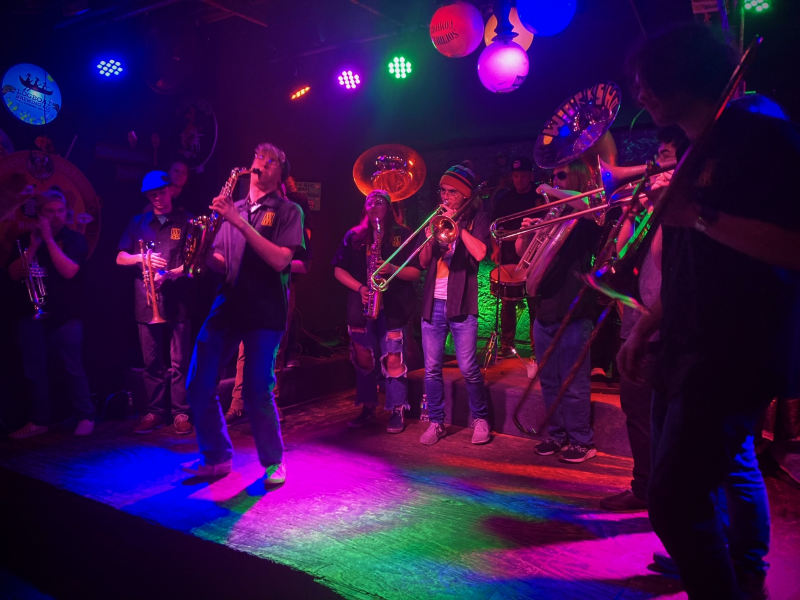Earlier this year, members of Michigan Tech’s Workshop Brass Band got a taste of the jazz musician’s life on the road.

Huskies tested their mettle by embarking on a five-day road trip to New Orleans. Even more than that, they discovered — through practice, through performance, through instruction — how to be a musician’s musician by being faithful to the original music, open to learning and willing to make mistakes.
Adam Meckler, associate professor and director of jazz studies, and visiting instructor Drew Kilpela led 16 jazz students on a 2,000-mile odyssey that began on New Year’s Day 2024. Meckler coordinated gigs, workshops with jazz legends and opportunities for Tech students to teach high school band students. The journey began with a rehearsal before the musicians set out. What they learned on the road can’t be taught in a classroom.